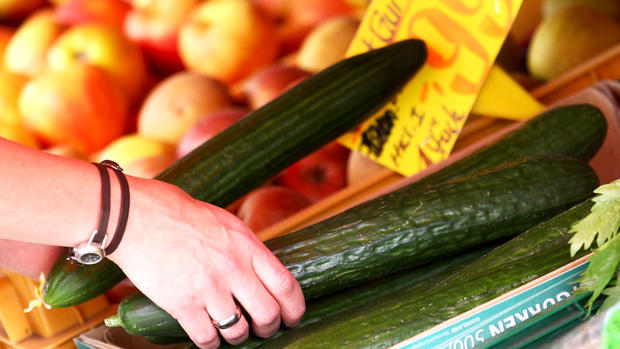Sprouts may not be cause of E. coli outbreak, experts say (PICTURES)
(CBS/AP) What's the source of the E. coli bacteria that have caused the deadly outbreak in Europe? Officials can't seem to get their story straight.
PICTURES- E. coli: 5 life-saving facts you must know
After early reports that seemed to pin the blame on cucumbers from Spain, officials said they thought the cause was sprouts from Germany. But test results released Monday put the kibosh on that theory, sending scientists scrambling once again to find cause of outbreak that has killed 22 people and sickened more than 2,200.
Authorities were almost certain that 18 types of sprouts from a farm in northern Germany were the source of the outbreak, after previously blamingSpanish cucumbers.
"While we have strong and clear indications that a farm in Uelzen is involved, we have to wait for the official lab results," German Health Minister Daniel Bahr said late Sunday. But on Monday, officials from Lower-Saxony state's agriculture ministry said that 23 of 40 samples from the farm in question tested negative for the deadly bacteria.
What steered them wrong in the first place?
Preliminary tests over the weekend found that infections in five German states could be traced to sprouts from mung beans, broccoli, peas, chickpeas, garlic lentils, and radishes. Prior to that, Germany's Federal Institute for Risk Assessment warned consumers to avoid all cucumbers, lettuces, and raw tomatoes from Spain.
E. coli can be found in human and animal feces, and spreads to vegetables via animal waste in fields and irrigation water, or from farm workers' poor hand-washing.
Symptoms of infection vary but often include stomach cramps, diarrhea (sometimes bloody), vomiting, and mild fever. Symptoms typically appear within four days, though sometimes the "incubation period" can last a week. Most people get better within seven days, but some develop a serious problem known as hemolytic uremic syndrome, which can lead to kidney failure.
The CDC has more on E. coli.

